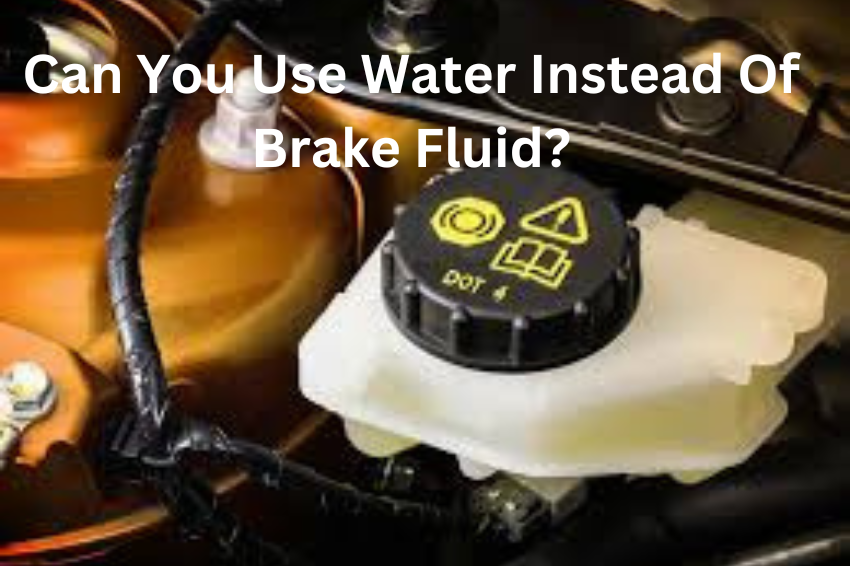In case you’re wondering if you can use water Instead of brake fluid;
No, water is not safe for brake fluid.
What Are The Dangers Of Using Water Instead Of Brake Fluid?
Using water Instead of brake fluid can lead to dangerous consequences like:
Brake Failure:
This is the most serious risk.
Brake fluid has a much higher boiling point than water.
When you brake, friction between the pads and rotors creates heat.
Water in the system can boil under this heat, forming vapor bubbles.
These bubbles compress easily, unlike the incompressible fluid.
This translates to a spongy brake pedal when you press it, reducing braking force significantly.
In worst-case scenarios, complete brake failure can occur, making it impossible to stop the car.
Corrosion:
Water is corrosive and can damage the metal components within the brake system, like the calipers, pistons, and lines.
This damage can lead to leaks, internal malfunctions, and ultimately, brake failure.
Reduced Braking Performance:
Even if complete brake failure doesn’t occur, water contamination can still greatly reduce braking effectiveness.
The spongy pedal feel and the presence of vapor bubbles make it harder to control your braking precisely, increasing stopping distances.
Using water in your brakes is simply not worth the risk if you ask me.
If you suspect water contamination, due to a leak or accidental mixing, don’t drive the car.
What Should I Do If I Accidentally Put Water In My Brakes?
First and foremost, do not drive your car.
Water in your brake fluid is a serious safety risk because brakes rely on special fluid to transmit pressure when you press the pedal, and water boils at a much lower temperature.
This means during braking, the water can boil and create vapor bubbles.
These bubbles compress easily, unlike fluid, leading to a spongy brake pedal and greatly reduced stopping power.
In the worst case, complete brake failure could occur.
To avoid an accident, park your car in a safe location and turn it off.
Depending on your situation, consider calling a towing service to take your car to a qualified mechanic.
This is the safest option if you’re unsure about the extent of water contamination or if your brakes already feel spongy or unresponsive.
If towing isn’t an immediate option, contact a mechanic and explain what happened.
A professional can assess the brake system for water damage and recommend the best course of action.
Here’s what the mechanic might do to fix the problem: they’ll thoroughly inspect the brake system for signs of water damage, like corrosion or leaks in the calipers, master cylinder, or brake lines.
Then, they’ll perform a brake fluid flush and replacement, which involves removing all the contaminated fluid and replacing it with fresh, high-quality brake fluid.
In severe cases, water contamination might necessitate replacing damaged brake components like calipers or wheel cylinders.
Remember, brake systems are critical for safety, and any mistakes can have serious consequences.
Leave it to a qualified mechanic to ensure your brakes are functioning correctly and safely after accidentally introducing water.
Never attempt to fix your brakes yourself unless you have the proper knowledge and tools.
